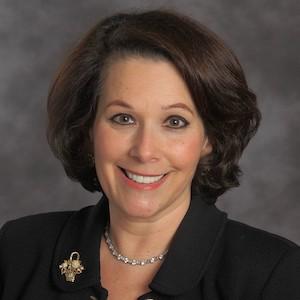Mammograms: Women’s Best Weapon Against Breast Cancer
- Category: Health
- Published: Tuesday, 05 October 2021 13:35
- Joanne Wallenstein
 When was the last time you got a mammogram? If your answer is before the pandemic, that means more than one year has gone by without the essential screening you need to catch breast cancer early. While that might not seem like a big deal, tumors can begin to grow and advance in that relatively short span of time. The statistics tell it all: Last spring and summer 2020, breast cancer screenings dropped nearly 90% – because of this, deaths from breast cancer are expected to rise 10% in 2025.
When was the last time you got a mammogram? If your answer is before the pandemic, that means more than one year has gone by without the essential screening you need to catch breast cancer early. While that might not seem like a big deal, tumors can begin to grow and advance in that relatively short span of time. The statistics tell it all: Last spring and summer 2020, breast cancer screenings dropped nearly 90% – because of this, deaths from breast cancer are expected to rise 10% in 2025.
Don’t Be a Statistic!
“About 70 percent of all breast cancer deaths occur in the portion of the population who are not getting regularly screened,” Dr. Caren Greenstein, Director of Breast Imaging at White Plains Hospital. “Also, there is no such thing as any woman being low risk for breast cancer,” Dr. Greenstein continues. “The numbers tell us that one in eight women in this country will develop it.”
While statistics show that the majority of tumors are found in women over 50, younger women are not immune to the risk. “Today, we are seeing some younger patients, including some patients in their twenties, with breast cancer,” she says.
When to Start Screening
Guidelines for when to start regular screening often lead to different recommendations from medical organizations. At White Plains Hospital, we follow the American College of Radiology recommendations and suggest healthy women without high-risk factors is to start getting mammograms yearly at age 40.
However, doctors suggest that certain groups of women with specific high-risk factors start even sooner – as early as age 30. Women who may be at higher risk include those who have a family history of breast cancer, especially if a first or second-degree relative developed breast cancer at a young age. Breast cancer in certain ethnicities, such as African American, Asian and Hispanic women, typically is diagnosed over a decade earlier than for Caucasian women (which is in their 60s). For those women who may be considered high-risk, new legislation requires large insurance companies in New York to cover mammograms in women aged 35 to 39 upon the recommendation of a physician, making early detection and treatment more likely.
For those women who may be considered high-risk, new legislation requires large insurance companies in New York to cover mammograms in women aged 35 to 39 upon the recommendation of a physician, making early detection and treatment more likely.
There is no excuse not to get back on track with your mammograms – or start if you haven’t already.
To find out more or to schedule an appointment click here:
Dr. Caren Greenstein is the Director of Breast Imaging at White Plains Hospital.
Posted by Dr. Caren Greenstein














